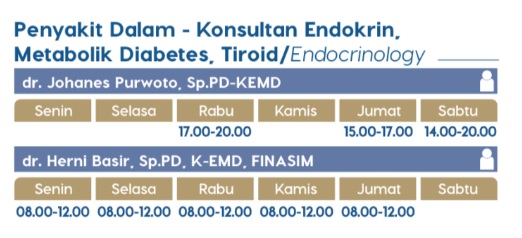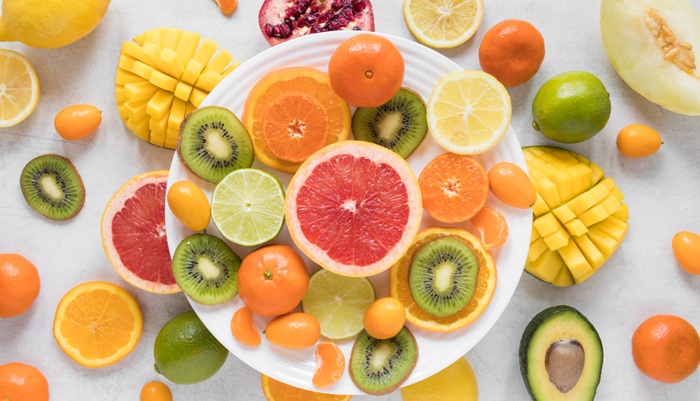Managing blood sugar levels is essential for people with diabetes. That’s why choosing the right foods is critical. The good news is, there are many delicious and highly nutritious foods for diabetes that can help support your health.
Contents
A List of Nutritious and Delicious Foods for Diabetes
Here are some of the best foods for diabetes that are both tasty and healthy:
1. Fatty Fish
Fatty fish like salmon, sardines, herring, anchovies, and mackerel are excellent sources of omega-3 fatty acids DHA and EPA, which have major benefits for heart health.
These healthy fats are especially important for people with diabetes, who are at higher risk of heart disease and stroke. DHA and EPA help protect blood vessels, reduce inflammation, and may improve artery function.
Regular consumption of fatty fish can also help manage blood pressure and body weight—both of which play key roles in diabetes and metabolic syndrome prevention.
Additionally, fish provides high-quality protein that helps increase satiety and stabilize blood sugar levels.
2. Leafy Greens
Leafy greens like spinach, kale, and others are packed with nutrients yet very low in calories and carbs.
They are easy to digest and won’t significantly impact blood sugar levels.
Leafy greens are also rich in essential vitamins and minerals, including vitamin C, a powerful antioxidant with anti-inflammatory effects.
Increasing intake of vitamin C-rich foods may improve blood levels of the vitamin in people with diabetes, helping reduce inflammation and cellular damage.
3. Avocados
Avocados contain less than 1 gram of sugar, are low in carbs, and high in fiber and healthy fats—making them a diabetes-friendly food that won’t spike blood sugar levels.
They are also linked to lower body weight and BMI, which is especially important as excess weight is a major risk factor for diabetes.
Avocados contain a unique compound called avocatin B (AvoB), a fat molecule that may reduce insulin resistance by improving muscle metabolism and pancreatic function.
Although more human studies are needed, avocados remain a nutritious snack to help keep blood sugar stable.
4. Eggs
Regular egg consumption can help reduce the risk of heart disease.
Eggs are known to reduce inflammation, improve insulin sensitivity, raise “good” HDL cholesterol, and improve LDL cholesterol particle size.
In a balanced diet, consuming 6–12 eggs per week does not increase heart disease risk in people with diabetes.
Eating eggs for breakfast has also been shown to lower blood pressure in individuals with prediabetes.
5. Chia Seeds
Chia seeds are high in fiber and low in digestible carbs, so they do not cause blood sugar spikes.
The viscous fiber in chia helps slow digestion, reducing blood sugar levels.
Chia seeds also promote weight loss, improve blood sugar control, lower blood pressure, and reduce inflammation.
6. Greek Yogurt
Greek yogurt is an excellent dairy option for people with diabetes.
It contains protein, calcium, and conjugated linoleic acid (CLA), a healthy fat that helps reduce appetite and support weight loss.
Greek yogurt has fewer carbs (around 6–8 grams per serving) than regular yogurt, while offering higher protein to keep you full longer.
7. Broccoli
Broccoli is low in calories and carbs but high in nutrients.
Half a cup of cooked broccoli has only 27 calories and 3 grams of digestible carbs, plus it’s rich in vitamin C and magnesium.
It also contains sulforaphane, which may help lower blood sugar levels.
8. Strawberries
Strawberries are rich in antioxidants like anthocyanins, which give them their red color, as well as beneficial polyphenols.
Regular consumption of strawberries may improve insulin sensitivity, especially in overweight individuals, helping to prevent blood sugar spikes.
9. Garlic
Though small, garlic is nutrient-dense. A single clove provides vitamin B6, vitamin C, manganese, selenium, and a bit of fiber.
Garlic is also known to help regulate blood sugar and cholesterol levels.
10. Shirataki Noodles
Shirataki noodles are excellent for managing diabetes and supporting weight control.
They contain high amounts of glucomannan, a viscous fiber extracted from konjac root.
This plant is widely cultivated in Japan and made into noodles or rice known as shirataki.
Glucomannan increases fullness, helping control appetite.
Studies show that glucomannan can reduce post-meal blood sugar and improve heart disease risk factors in people with diabetes and metabolic syndrome.
In animal studies, glucomannan significantly lowered fasting blood sugar, insulin, and cholesterol levels.
Note: Shirataki noodles are usually packaged in a fishy-smelling liquid, so rinse them thoroughly before cooking. For a regular noodle-like texture, stir-fry in a dry pan on high heat for a few minutes.
11. Citrus Fruits
Citrus fruits like oranges, grapefruits, and lemons are an easy way to get essential vitamins and minerals.
According to the American Diabetes Association (ADA), these fruits can benefit people with diabetes.
They’re high in antioxidant flavonoids like hesperidin and naringin, which have anti-diabetic effects.
Citrus fruits are also good sources of:
- Vitamin C
- Folate
- Potassium
12. Sweet Potatoes
Sweet potatoes have a lower glycemic index (GI) than white potatoes, making them a safer carb choice for people with diabetes.
They release sugar slowly and don’t cause sharp spikes in blood sugar.
Their fiber content also helps regulate blood sugar levels.
Sweet potatoes are also rich in:
- Vitamin A
- Vitamin C
- Potassium
13. Walnuts
Walnuts are a heart-healthy snack packed with healthy fats, much like fatty fish.
They are rich in ALA (alpha-linolenic acid), a plant-based omega-3 that supports heart health. Since people with diabetes are at higher risk for heart disease and stroke, ALA is especially beneficial.
One study found that regular walnut consumption may be linked to a reduced risk of diabetes.
Walnuts also contain:
- Protein
- Vitamin B6
- Magnesium
- Iron
14. Berries
Berries are packed with antioxidants that help fight oxidative stress, which is linked to many serious conditions including heart disease and certain cancers.
Research shows oxidative stress may also contribute to the development of type 2 diabetes, which results from an imbalance between antioxidants and unstable molecules called free radicals.
Berries like blueberries, blackberries, strawberries, and raspberries are high in fiber and antioxidants, and they also provide:
- Vitamin C
- Vitamin K
- Manganese
- Potassium
15. Squash
Squash, with its many varieties, is one of the healthiest vegetables. It’s nutrient-dense, filling, low in calories, and has a low glycemic index (GI).
Like most vegetables, squash is rich in antioxidants and contains less sugar than sweet potatoes, making it a great alternative for people with diabetes.
A 2018 study found that pumpkin polysaccharides—also present in other squash varieties—can improve insulin tolerance and lower blood sugar in animal models.
However, more human studies are needed to confirm these benefits.
Managing Diabetes with the Right Diet
If diabetes is not properly managed, the risk of developing serious health conditions increases significantly.
Eating foods that help stabilize blood sugar, insulin, and inflammation can greatly reduce the risk of complications.
However, while these foods can help control blood sugar, the most important factor in maintaining healthy levels is to follow a nutritious and well-balanced diet overall.
Diabetes Specialists at Mandaya Royal Puri Hospital


Mandaya Royal Puri Hospital has an experienced team of diabetes specialists:
- dr. Johanes Purwoto, SpPD-KEMD
- dr. Herni Basir, SpPD, KEMD, FINASIM
If you have diabetes, don’t hesitate to consult them. They can provide you with personalized healthy living tips and a safe diabetes-friendly food list.
To make your visit easier, use our WhatsApp Chat feature, Book Appointment tool, or download the Care Dokter app via Google Play or the App Store to check queue numbers and access complete hospital information.



